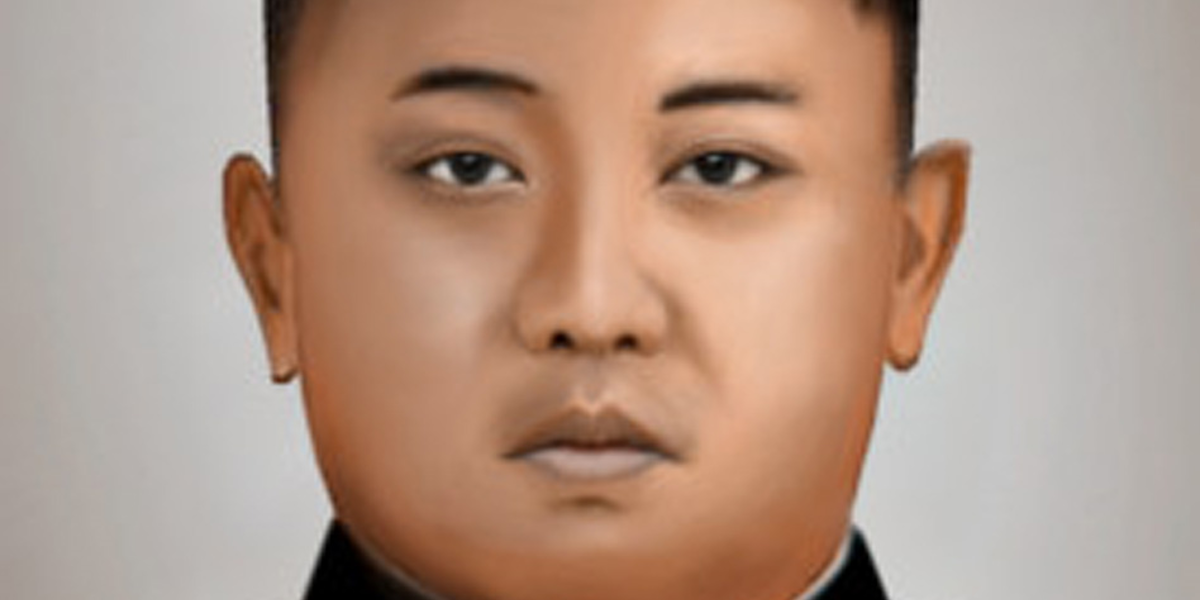There exists a pervasive myth in the world of international relations regarding nuclear weapons. It concerns the difference between zero and one. It holds that by acquiring nuclear weapons a state takes a giant leap in terms of its capacity to wield and resist coercive power. That nukes, by way of their incomparable destructive power, are in-and-of themselves a game-changing strategic resource. Kim’s attraction to the myth therefore is obvious. Accelerate the regime’s missile and warhead programs to the point of plausible completion and exempt himself from the fate of Saddam Hussein in 2006 and Muammar Gaddafi in 2011. The regular presence of US B-1 Lancers and F-22 Raptors in the skies off the Korean Peninsula of late make such a fate no mere theoretical menace. NK’s lack of situational awareness via long-range radar and airborne early-warning systems would only multiply the regimes fear of these existential threats. The sooner they can convince the world they are a bona fide nuclear state, the sooner these threats should recede. At least that appears to be the working theory.
Kim’s regime is thus not particularly interested in the fracturing of the San Francisco system. It’s behaviour is pure survival instinct, very little strategy. It is China that coverts the breakdown in north-east Asia’s security architecture. Kim’s instinct for survival is a mere instrument of Beijing’s. Beijing continues to calculate that a nuclear NK is a less-bad situation than a unified Korea more-or-less under South Korean leadership. Such is the revealing level of hostility in Beijing regarding the San Francisco system. It appears to them as temporary as it is artificial, and Beijing knows its weakest point is its politics. As NK’s provocations escalate, the tiny but uncomfortable hairline fractures in the system are getting bigger. To be clear, NK just fired a ballistic missile over Japanese territory with impunity. And it appears more is to come. The old questions of trading Tokyo or Seoul for Los Angeles (?) are back in the spotlight. Alliance partners in quiet times tend to gloss over these inconvenient glitches. For Beijing they are beacons of inconsistency. They reiterate the foundational question raised by China’s re-emergence from Beijing’s point-of-view: Why exactly is the United States in East Asia?
So expect nothing more than lip-service and empty gestures from Beijing, it’s not in their self-subscribed strategic interest to intervene – no matter how much Washington, Tokyo, or Canberra would disagree. NK’s recent acceleration toward a nuclear capability combined with President Trump’s rhetorical flair has set off some remarkable reactions from the commentariat. Crispin Rovere is convinced that Trump now faces a terrible binary choice between the acceptance of a nuclear NK, and the ‘mutual vulnerability’ this apparently implies, or war. And Rovere claims that war is now the least-worse option, because mutual vulnerability with NK would be intolerable. NK would be free to wield greater and greater degrees of its new found coercive power on its hapless neighbours, Australia included, while the US commitment to its allies would evaporate, leaving Beijing to set about dominating the Western Pacific into the second half of the 21st century and beyond. So given a choice between that scenario and the horrors of another Korean war, Trump has a terrible choice.
But let’s back up a little bit because a few important points have been glossed over here. Beware axiomatic sequences in IR. Especially when they lead to war.
Firstly, mutual vulnerability is not equal vulnerability. NK’s best-case scenario is a small nuclear arsenal of ground-based and perhaps mobile ballistic missiles. This does not automatically count as a secure second-strike deterrent. Secure second-strike is the level of deterrence needed if NK were to seriously embark on a campaign of wanton coercion of neighbouring states. Recent literature suggests strategic communities have consistently under-played the difficulty of achieving a genuine secure second-strike. Counterforce targeting capabilities pursued during the Cold War left the US in possession of a suite of tools that together raised serious questions about the invulnerability of even the Soviet Union’s massive arsenal. These tools have matured significantly in the years since 1991, and applied against NK’s small, vulnerable ground-based arsenal, mobile or otherwise, suggests secure second-strike status does not come easily or quickly to new nuclear weapons states. It may not come at all, which speaks not only to the myopia of Kim’s quest, but to the calculations of all nuclear aspirants. Is it really worth it? The point is nuclear strategy is defined by uncertainty. Kim doesn’t know what he doesn’t know. The constraints acting on a nuclear aspirant are different than those acting on a nuclear power. Once in possession of these weapons, Kim will find himself incarcerated by his own hubris.
Secondly, the cost of maintaining and securing a sophisticated and growing nuclear weapons regime is massive. If it is to be kept on high alert, the level of alert that makes it secure in the first place, the cost only grows. China, for comparison, does not keep its nuclear arsenal of 200-300 warheads and thousands of ballistic missiles of varying range on alert. The warheads are not coupled to the delivery systems. China has never put a nuclear-tipped ballistic missile to sea in a submarine. The Soviet Union and United States drove each other to the brink of economic ruin competing to prove to the other the hair-trigger alert status of their arsenals, and several times it almost got us all killed. The point here is that to play with the big boys as a genuine nuclear power is exceedingly difficult, dangerous, and expensive. Pyongyang is already impoverished and dependent on others to keep the lights on. How do they seriously think they can sustain a secure second-strike? And how might these new vulnerabilities open up opportunities for counter-coercion? For example, how certain can Kim be that the military’s systems are not riven with zero day exploits? How will the regime pay for the early-warning radar systems required to identify and distinguish threats to the arsenal? What about nuclear accidents, sabotage, espionage?
Which leads to the final point. Joseph Nye made the enduring observation in 1990 that the resources of power, whether they be military, economic, social, or whatever, are not proxies for political outcomes. A power resource is only of value to the extent that the appropriate strategy is implemented that can transform that resource into an outcome. For the Kim regime, acquiring nuclear weapons, undeniably a power resource, will probably stave of an imminent Iraq/Libya style invasion, not that anyone was actually planning one. But the idea that this resource automatically turns NK into an intolerable strategic menace in East Asia and beyond is a massive stretch of credulity. In fact, there are several reasons to suggest the effect of acquiring nuclear weapons may be the acceleration of the real forces actually threatening its downfall. Cost is the obvious one already mentioned. The related exposure to external coercion due to heightened economic dependency another. But perhaps the most interesting and under acknowledged threat is this: With a perceived nuclear deterrent in place, what reason exactly does the regime have to continue the wholesale theft and fear-driven incarceration of its people? When the regime celebrates their new found invulnerability, will the people cheer?
Or will their expectations begin to change? Expectations that the government ought to provide them with the means to a decent, dignified, humane existence, like that of their southern cousins. Expectations that rural families should not be forced into the cruel indignities of starvation-driven slavery, just so the Kim family can continue its criminal plunder. By pursuing his myopic vision of regime survival, Kim Jong-Un has inadvertently sown the seeds of his accelerated demise. The foolish boy-king is terrified. He has lunged for the sword when what he needed was an economic strategy. No war is necessary on the Korean Peninsula. The US and its allies should hold the line and feed a dictator his rope.

























